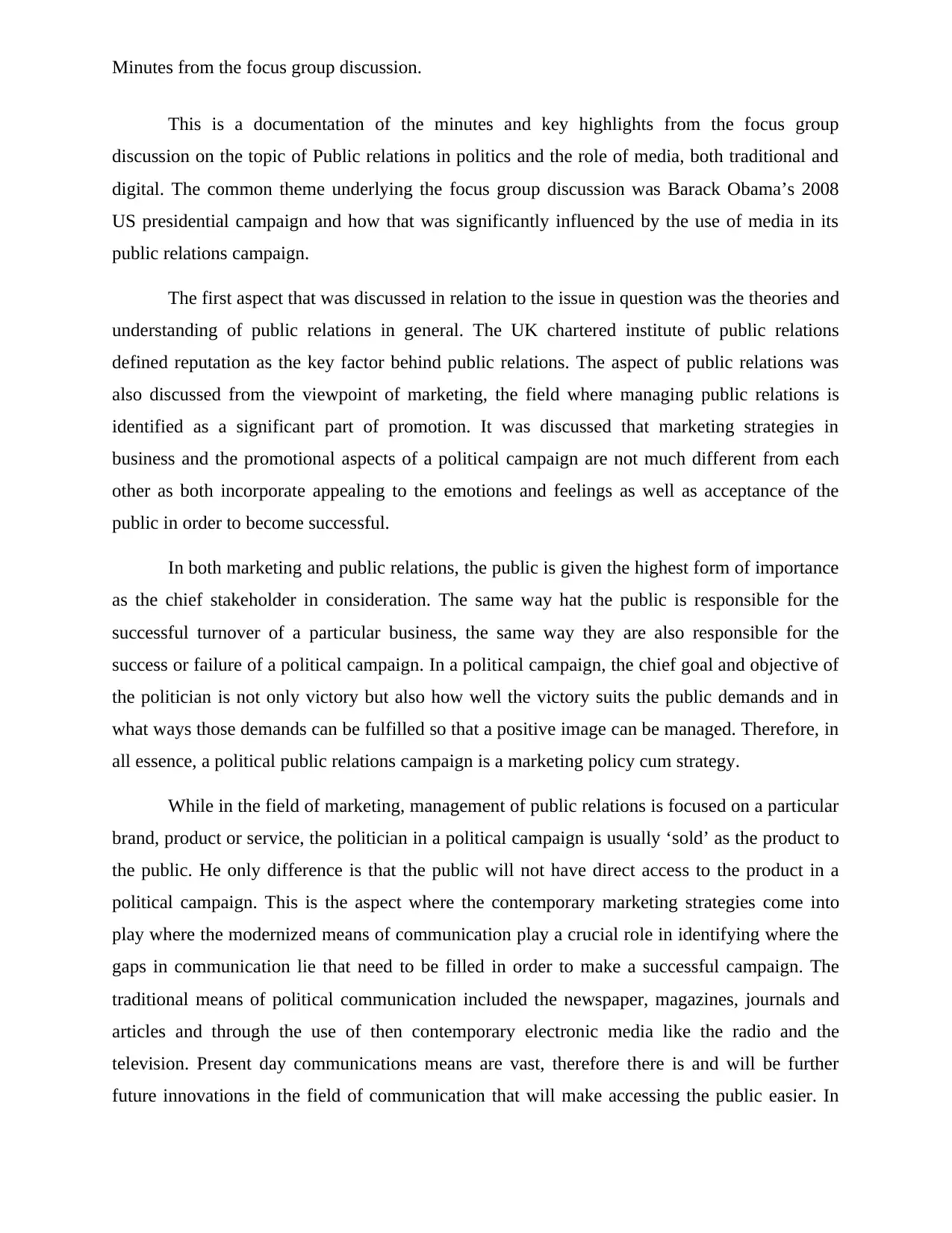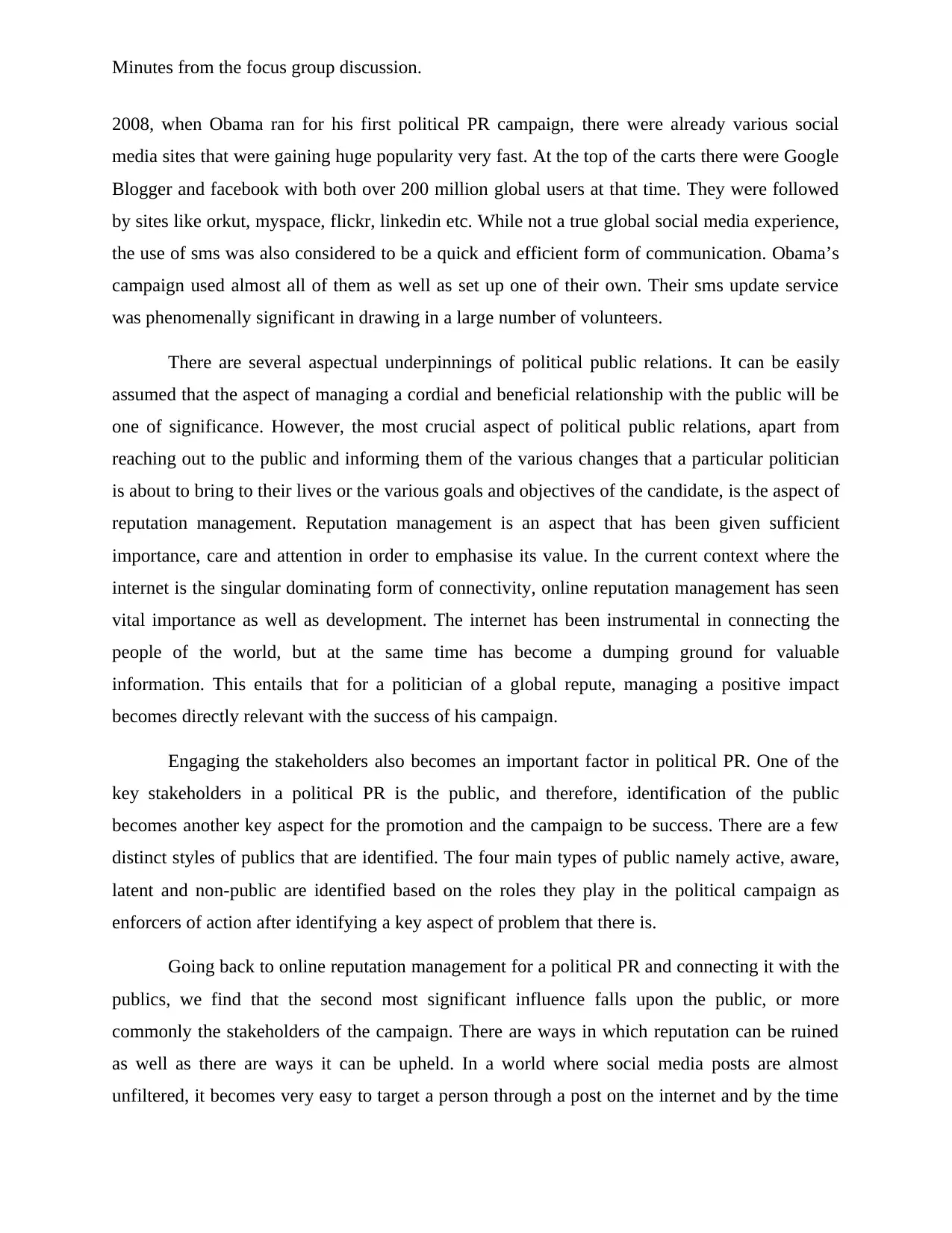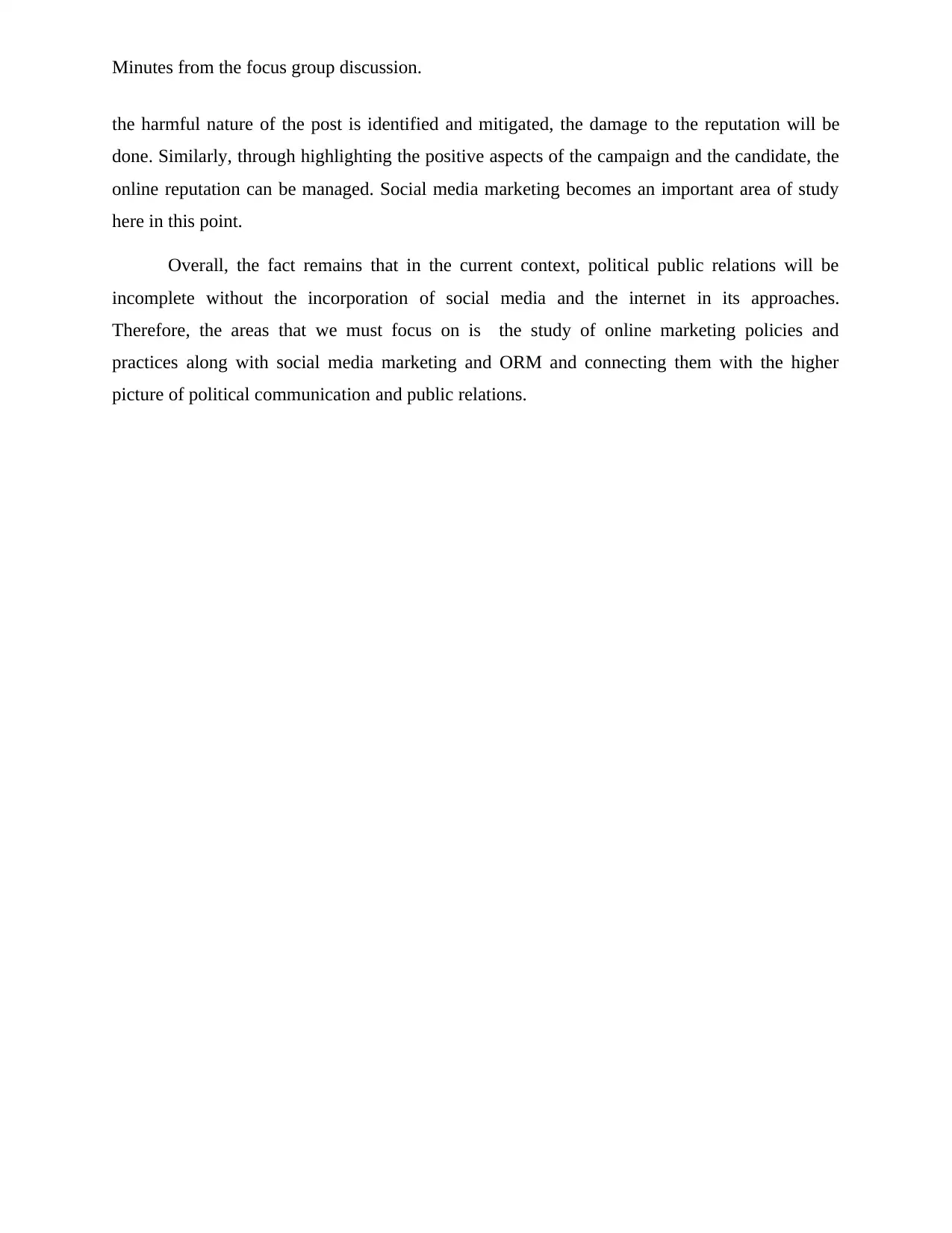Analysis of Focus Group on Public Relations in Political Campaigns
VerifiedAdded on 2022/12/28
|3
|1099
|35
Report
AI Summary
This report presents the minutes and key highlights from a focus group discussion centered on public relations in politics, with a specific emphasis on the roles of both traditional and digital media. The discussion primarily uses Barack Obama's 2008 US presidential campaign as a case study, examining how media influenced its public relations strategy. The group explored general public relations theories, viewing reputation as a critical factor. The discussion compared marketing strategies in business and political campaigns, highlighting the importance of appealing to public emotions and acceptance. The report details the evolution of communication methods, from traditional media to the rise of social media platforms like Google Blogger and Facebook during the 2008 campaign. It then examines the key aspects of political public relations, including managing relationships with the public and reputation management, particularly online. The report also addresses the importance of engaging stakeholders and identifies different types of publics. Overall, the report emphasizes the crucial role of social media and the internet in contemporary political public relations, recommending a focus on online marketing, social media marketing, online reputation management, and their integration within the broader context of political communication.
1 out of 3










![[object Object]](/_next/static/media/star-bottom.7253800d.svg)